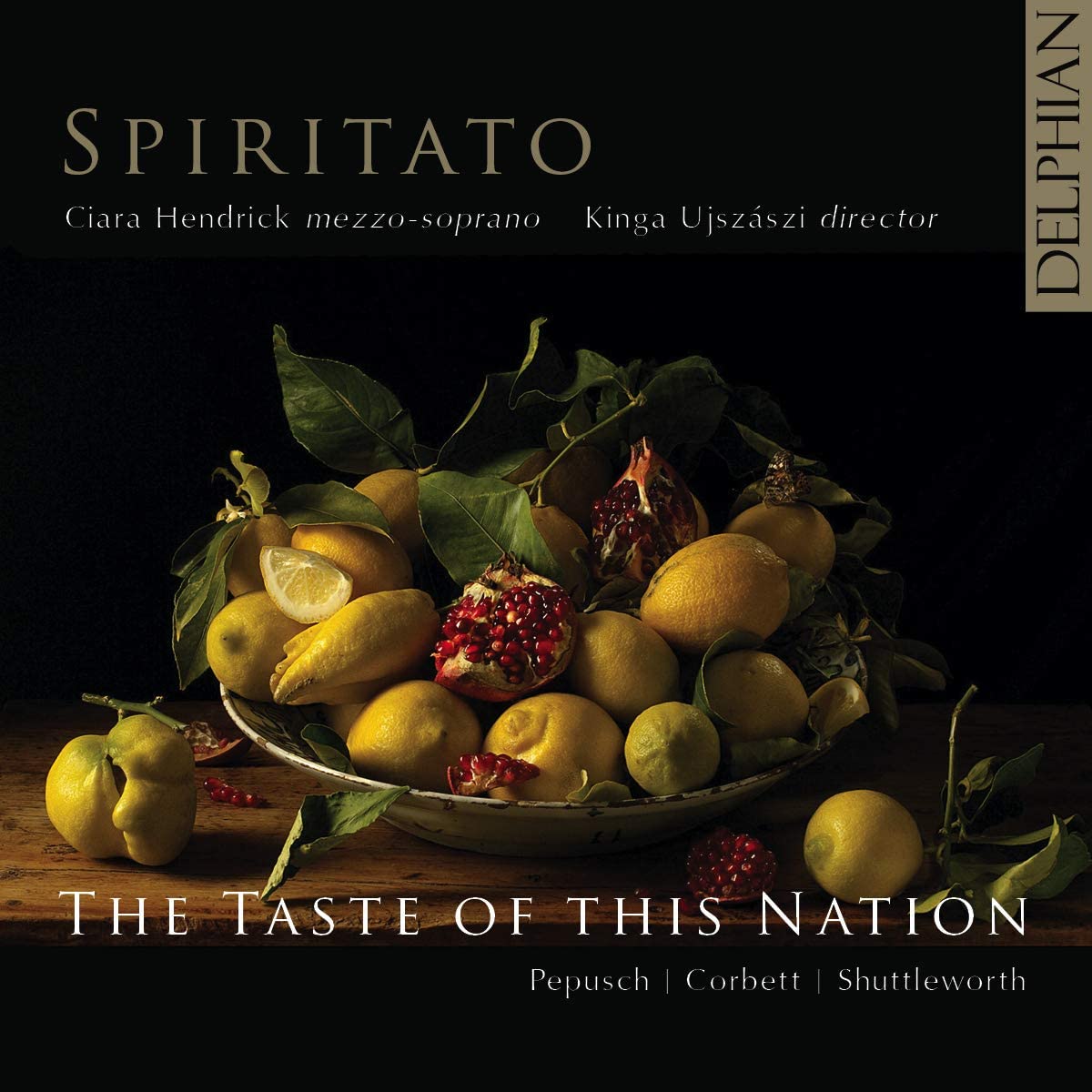Clara Hendrick mezzo-soprano, Spiritato directed by Kunga Ujszászi
74:26
Delphian DCD34236
Click HERE to buy this on amazon.co.uk
[These sponsored links help the site remain alive and FREE!]
With this imaginative CD Spiritato open a window on the London music scene just prior to the arrival there of Handel. Resident musicians such as the three represented here were already introducing the Italian taste to the English – it has to be said that they are very much ‘silver’ composers, and I found myself constantly wondering what a first-rater like Purcell would have been writing in their place had he survived. Perhaps the best known of our trio, and probably the best composer among them, is Prussian-born London resident Pepusch, whose four cantatas beautifully sung by Clara Hendrick vividly bring the scene to life, and directly prefigure the operatic world of Handel. The most striking of these is his ‘While pale Britania sate’, the very impressive precursor of so many similarly patriotic numbers by Handel and in which Hendrick duets stirringly with the group’s trumpeter, William Russell. Perhaps the biggest surprise for me were the Concerti Grossi of Obadiah Shuttleworth, music I was completely unfamiliar with. Perhaps wisely relying on the inventiveness of Corelli, Shuttleworth reworks this composer’s op 5 Violin Sonatas into very effective concerti grossi. In doing so, he usefully introduces Corelli’s music to London, but more than that he too is preparing the way for the greater master to come, Handel and his ground-breaking op 6 Concerti Grossi. Of the three composers represented here, the most English and the one who owes most to the previous generation of English composers is William Corbett. There are constant echoes of Purcell, although his Sonata for Oboe and Trumpet recalls the work of the Czech-born but London resident Godfrey Finger. With these wonderfully passionate performances, Kinga Ujszászi and Spiritato prove powerful advocates of this largely unfamiliar music, and make a powerful case that even in the few years between the death of Purcell and the arrival of Handel England was anything but a ‘Land ohne Musik’.
D. James Ross
